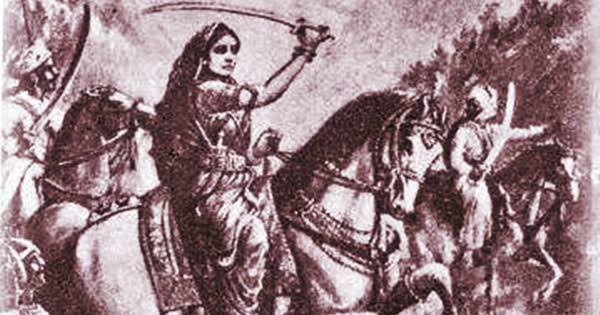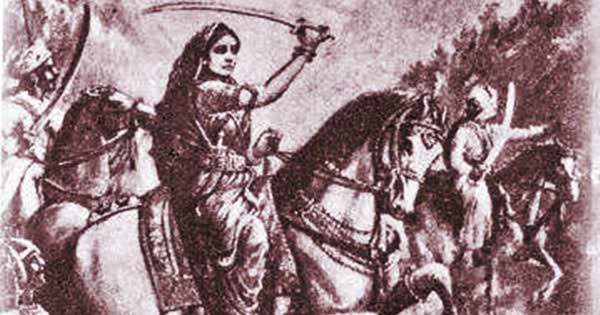The Islamic Mughal invaders who conquered and ravaged many parts of India, committing atrocities on local populations have somehow been romanticized and idolized in Indian History books, courtesy if the Leftist- Marxist Education system that modern India has. Although they conquered and ruled large regions of north-India ,there were numerous kingdoms that they could never win.Here is the story of one and how the “nak kati rani” protected it.
Just like Mewar of Rajasthan, the Garhwal kingdom in present day Uttarakhand is one of those kingdoms that resisted the invaders and kept their sovereignty through military velour. Here is the unforgotten story of the Garhwali queen who fought, defeated and humiliated the Mughals in uttarakhand by literally cutting off their noses.
King Mahipati Shah of Garhwal was a battle loving ruler who did believed in stiff oppoitin to any invasion. When Shah Jahan,the Mughal Emperor was crowned on 14th February 1628 at Agra, rulers from all over the subcontinent visited his coronation , but King Mahapati denied the invitation. This enraged the new emperor. He had heard tales of gold mines in the kingdom of Garhwal and this solidified his resolve to invade the hill kingdom.

While the threat of the battle grew bigger and bigger ,the king fell ill and died from a battle injury in 1631. This was followed by the coronation of his 7 year old son as the new king. The new king was advised by his mother , Rani Karnavati, who effectively ruled the kingdom on his behalf.Smelling weakness at the demise of the king, the mughals thought it would be an easy victory for the mighty mughals. But they were soon to be proven very wrong.
Content
The battle with Mughals that made her the Nak kati Rani
Shah Jahan sent his General Najabat Khan, along with 30,000 men to capture Srinagar(the capital of Garhwal kingdom,now in Uttarakhand).The army marched towards the hills.
The Garhwali Queen let them enter her kingdom but after they had entered and were crossing the river Ganga on Lakshman Jhula(present day Rishikesh), she held them , cutting them off from both ends. Their food supplies were also cut. With food supplies running low and morale fading away,the Mughal army stared into a certain death. The General Najabat Khan sent a peace treaty message ,which the queen declined.
She attacked them heavily and after defeating them let them go but only after cutting off their noses. This was a symbolic message sent to the Mughal enperor Shah Jahan, that if she had cut off their noses it meant that she had chosen to forgive their lives. Also in Indian common language , getting Nose cut or ‘naak katana’ is metaphorical way of saying someone has been humiliated. This incident earned the great garhwali queen the name of Nak Kati Rani.

This enraged the Mughal King more and he sent another army which met the same fate. This cemented the bravery and military might of the Independent Hill Kingdom of Garhwal in the Pages of Indian history. Witnessing less action after that, Garhwal kingdom remained to be an independent kingdom right untill 1947.
The legacy of Nak kati Rani:
Monuments erected by the Garhwali queen Rani Karnavati still exist in Dehradun District at Nawada,she is also said to have started the construction of Rajpur Canal, the oldest of the Dun canals, which starts from the Rispana River and brings its waters till the city of Dehradun. Rispana River is one of the tributaries of Song River that drains the the Doon Valley.
Sources : OpIndia , The Tribune
Donate to our Cause
If you Support what we are doing and would like to contribute to help us grow and reach more Indians to teach them more about such forgotten historic Indian Heroes and stories, please consider donating any amount. It will help us grow


Excellent platform to know the true history of India 👍👍👍
Thanks !
Thanks for the great story…really eye opening
Great story.
Thanks !
Maharani Karnavati jaise yoddha ka kahani har ghar tak pahuchana chahiye..🙏🙏🙏🙏
Thanks
The great maharani Karnavati, Maharani Karnavati ki kahani har ghar tak pahuchna chahiye, we feel proud of maharani Karnavati